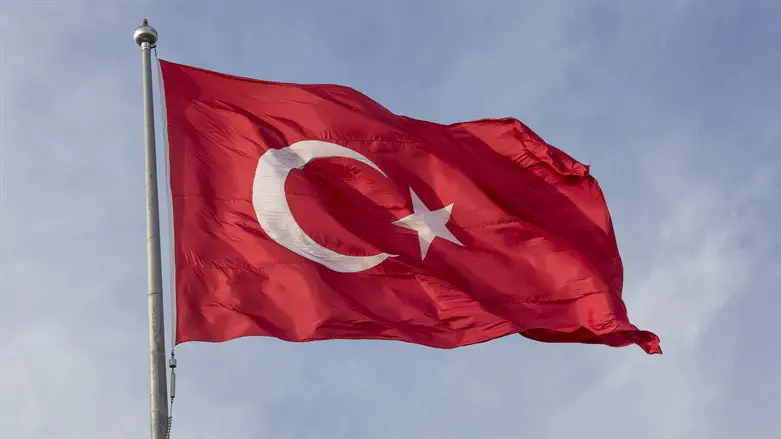
A Turkish court on Monday sentenced prominent Turkish civil rights activist and philanthropist Osman Kavala to life in prison without parole, finding him guilty of attempting to overthrow the government with mass protests in 2013, The Associated Press reports.
Western governments and rights groups strongly criticized the ruling, with one calling it “a travesty of justice of spectacular proportions.”
The court in Istanbul also sentenced seven other defendants, including 71-year-old architect Mucella Yapici, to 18 years in prison each for “aiding” the attempt. It ordered that the activists, who were not in custody, be immediately arrested, the state-run Anadolu Agency reported.
Kavala, 64, has been jailed in Silivri prison, on the outskirts of Istanbul, since he was detained October 18, 2017, accused of financing the protests. He and other defendants denied all the accusations and are expected to appeal the verdicts, according to AP.
Human rights groups say Kavala was prosecuted with flimsy evidence and that the case is politically motivated. Kavala is the founder of a nonprofit organization, Anadolu Kultur, which focuses on cultural and artistic projects promoting peace and dialogue.
German Foreign Minister Annalena Baerbock said the verdict “blatantly contradicts the constitutional standards and international obligations that Turkey commits itself to as a member of the Council of Europe and EU accession candidate.”
“We expect Osman Kavala to be released immediately -- the European Court of Human Rights has bindingly obliged Turkey to do so,” Baerbock was quoted as having said.
The rights group PEN America called the verdict a “dark moment for Turkey” while Nils Muiznieks, Amnesty International’s director for Europe, said it amounted to a “travesty of justice of spectacular proportions.”
Asked for his final words in court on Monday, Kavala said, “The aggravated life sentence demanded against me is an assassination that cannot be explained through legal reasons,” according to the Media and Law Studies Association group which has been monitoring the trial.
Kavala was initially acquitted in February 2020 of charges that connected him with the 2013 Gezi Park protests. Those protests erupted after police cracked down heavily on a campaign to save Gezi Park from redevelopment.
As supporters awaited his release, Kavala was rearrested on new charges linking him to Turkey’s failed 2016 coup attempt. The acquittal was later overturned and the case was merged with that relating to the coup attempt, which the Turkish government blames on the network of US-based Muslim cleric Fethullah Gulen. Gulen denies any links to the attempted coup.
The court on Monday acquitted Kavala of charges linked to the coup attempt, saying there was insufficient evidence, Anadolu reported.
Turkey has cracked down on dissent since a failed coup in July of 2016, with tens of thousands of people having been detained, suspended or sacked during that time.
Even before the failed coup attempt, Turkey has seen spiraling numbers of journalists, bloggers, and ordinary people - even schoolchildren - being taken to court on charges of insulting Erdogan and other top officials.
Examples include a 17-year-old teen who was charged with "insulting" Erdogan on Facebook, a Turkish philosophy professor who was accused of insulting Erdogan in an article in which he accused the president of corruption, and even the former Miss Turkey who was prosecuted for social media posts deemed to be critical of Erdogan.
In December of 2016, the head of a cafeteria at a Turkish opposition Cumhuriyet newspaper was detained for insulting Erdogan after saying he would refuse to serve him tea.
Erdogan in 2015 filed a criminal complaint against the Cumhuriyet newspaper and its editor for publishing images allegedly showing trucks belonging to the state intelligence service helping send weapons to rebels in Syria.
Turkey also regularly blocks access to websites and has in recent years tightened government control of the Internet and the judiciary, generating criticism from rights groups.
